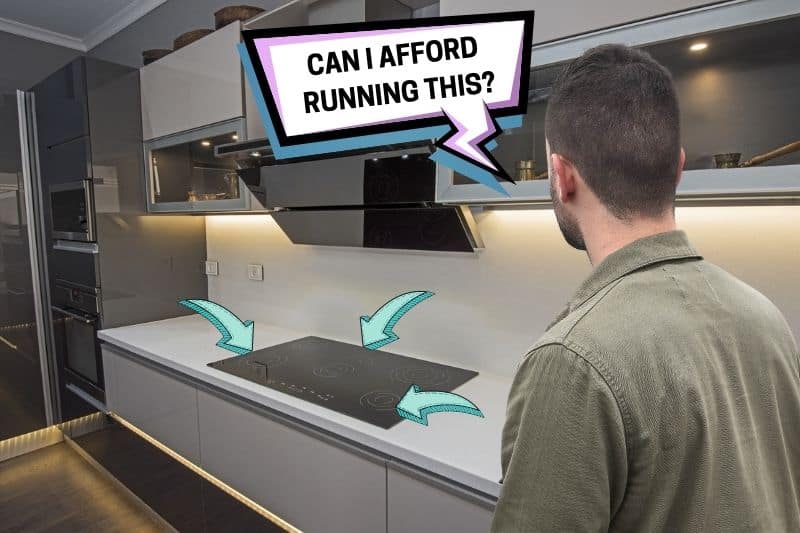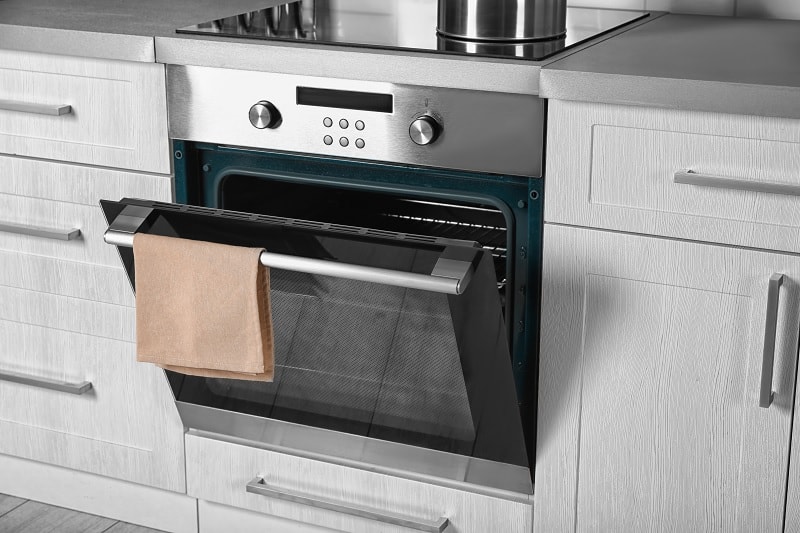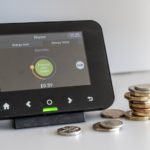Induction hobs are relatively expensive to buy, but are they expensive to run? These are hobs are known for being energy efficient, so you might assume that they would be very cheap to run.
However, the answer isn’t so simple when you compare them to other cooking methods such as gas.
In this article, we’ll look at average induction hob energy usage and running costs.
How Much Energy Do Induction Hobs Use?
We looked at 10 of the top-selling induction, gas, and ceramic electric hobs in the UK to determine their energy usage.
We found that in terms of power usage, the three hob types are similar:
- Average induction hob ring power usage (per hour): 1.95 kWh
- Average gas hob ring power usage (per hour): 1.95 kWh
- Average electric ceramic ring power usage (per hour): 1.65 kWh
The amount of energy you use will depend on how many rings you use, whether you have them on a low or high heat, and how long you use them.
If you just heat something up for a few minutes on one ring, you will use a lot less energy than you would if you were preparing a complex meal using all four or five hob rings.
Induction Hob Running Costs
The average cost of electricity per kWh in the UK is 27.03p for the period from 1 April to 30 June 2025. The average energy used by an induction hob ring is 1.95 kWh per hour.
Per hour or day
If you use an average of one induction ring for one hour a day, the cost of running an induction hob would be:
- 27.03p x 1.95 = 52.7p
Per year
If you use an average of one induction ring for one hour every day of the year, the annual running costs would be:
- 27.03p x 1.95 x 365 = £192.39
Gas Hob Running Costs
The average cost of gas per kWh in the UK is much cheaper than electricity, at 6.99p for the period from 1 April to 30 June 2025. The average energy usage of a gas hob ring is 1.95 kWh per hour.
Per hour or day
If you use an average of one gas hob ring for one hour a day, the cost of running a gas hob would be:
- 6.99 x 1.95 = 13.6p
Per year
If you use an average of one gas hob ring for one hour every day of the year, the annual running costs would be:
- £0.0699 x 1.95 x 365 = £49.75
Ceramic Hob Running Costs
The average cost of electricity per kWh in the UK is 27.03p and the average energy use of a ceramic electric hob ring is 1.65 kWh per hour.
Per hour or day
If you use an average of one ceramic hob ring for one hour a day, the cost of running a ceramic hob would be:
- 27.03p x 1.65 = 45p
Per year
If you use an average of ceramic hob ring for one hour every day of the year, the annual running costs would be:
- 27.03p x 1.65 x 365 = £162.79
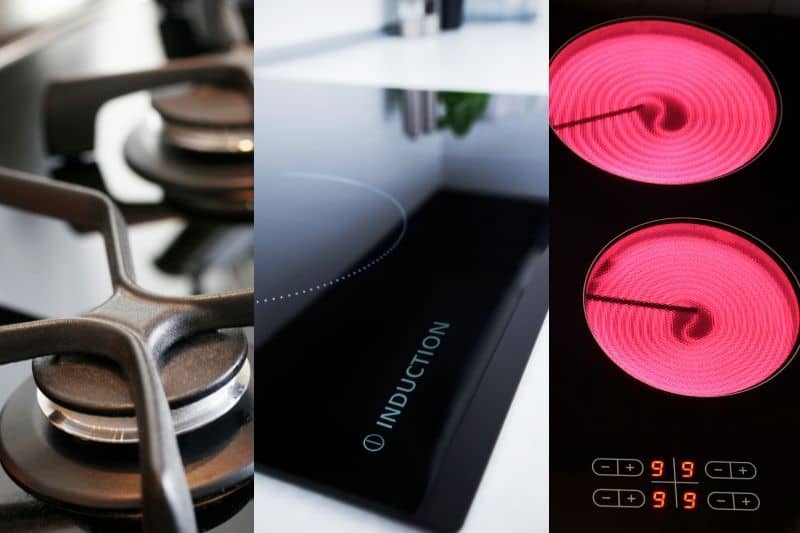
Is Induction Really More Expensive to Run Than Gas or Ceramic?
Based on the figures above, an induction hob is more than three times more expensive to run per hour than a gas hob. However, because induction hobs are so much more energy-efficient, you won’t need to leave it on as long, so it won’t be quite as expensive compared to gas.
If you look purely at energy usage per hour, you would conclude that induction hobs are four times more expensive to run than gas hobs. However, when the energy efficiency of induction is taken into account, we estimate that running costs will be closer to twice those of a gas hob, not four times.
Induction can heat and boil water much quicker than gas, so you will find you don’t need to leave your induction hob turned on for as long.
Induction hobs also work out cheaper to run than ceramic electric hobs in practice, since they are much more efficient. This goes some way to making up for the higher up-front cost of buying an induction hob.
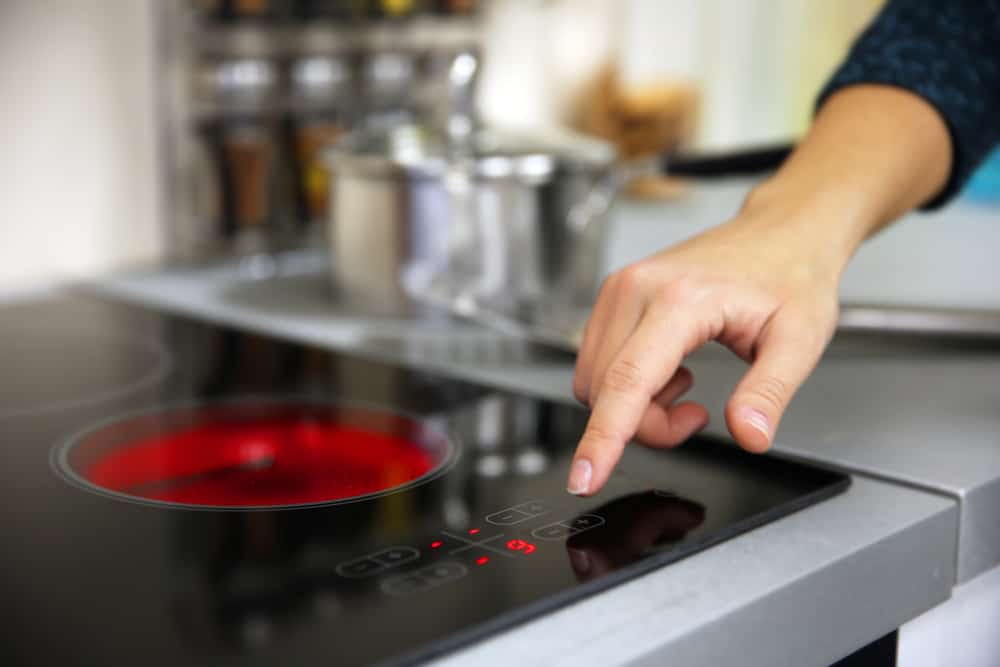
This study published by the American Council for an Energy-Efficient Economy (ACEEE) found that with induction cooking, as much as 90% of the energy consumed is transferred to the food, compared to just 40% for gas and 74% for regular electric hobs.
For a practical example, let’s look at how much it would cost to boil a pan of water, taking into account the efficiency of different hob types.
According to research from Which?, this is how long it takes to boil a large pan of water on the average hob:
- Induction hob: 3.56 mins
- Gas hob: 8.27 minutes
- Electric ceramic hob: 7.38 minutes
This means that induction hobs are about twice as fast as other hob types.
Based on this and the figures given above, the cost of boiling a large pan of water would be as follows for the different hob types:
- Induction hob: 0.06 (hours) x 1.95 (kW) x 27.03p (price per kWh) = 3.2p
- Gas hob: 0.138 (hours) x 1.95 (kW) x 6.99p (price per kWh) = 1.9p
- Ceramic hob: 0.123 (hours) x 1.65 (kW) x 27.03p (price per kWh) = 5.5p
As you can see, induction is more expensive to run than gas despite being quicker and more energy efficient. However, the running costs are more similar than you’d expect if you just compared per-hour costs, because induction is much quicker. Ceramic is almost three times as expensive as gas.
Cost of Buying an Induction Hob
Induction hobs tend to be more expensive than gas and ceramic electric hobs.
At the time of writing, the most popular induction hobs in the UK cost from around £150 to over £2,000, with a median price of about £500.
Gas hobs are cheaper to buy, starting at around £80 and rarely costing more than £500. The median price of a gas hob is around £200.
Electric ceramic hobs are priced somewhere in the middle, costing from about £120 to £700, with a median price of around £250
If you cook a lot, it will be worth investing in an induction hob rather than a ceramic hob, as the energy savings should pay for themselves well before it’s time to replace the hob. You’ll also be able to enjoy the greater responsiveness and speed of induction cooking.
However, if you only cook occasionally and are on a budget, a ceramic hob might be a better choice. Gas remains the cheapest option.

Scott is a writer and a passionate home chef. His passion for cooking began when he was 10 years old. Scott has been writing professionally for over five years now and loves to combine his passion for cooking with his day job.

